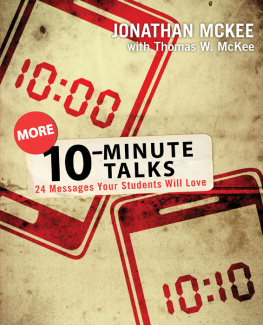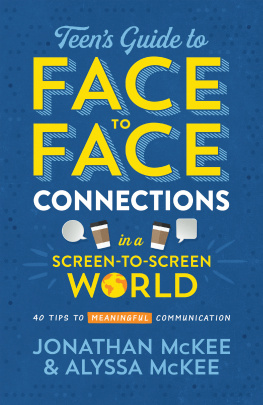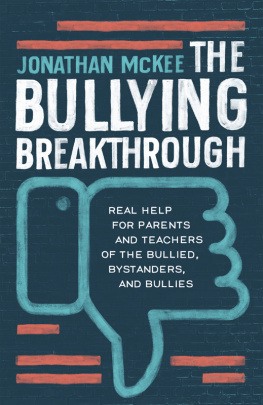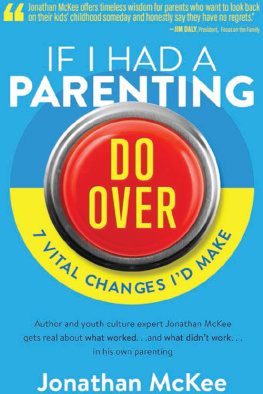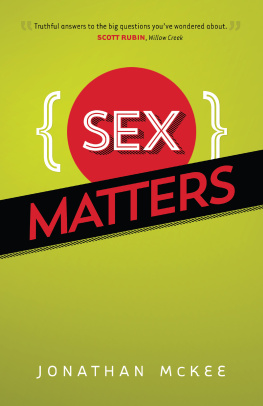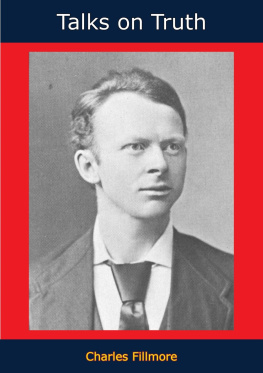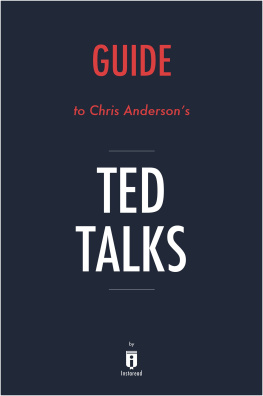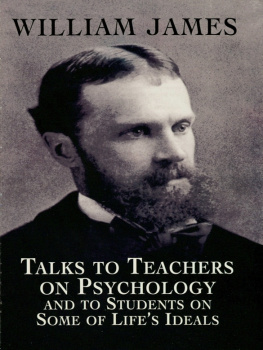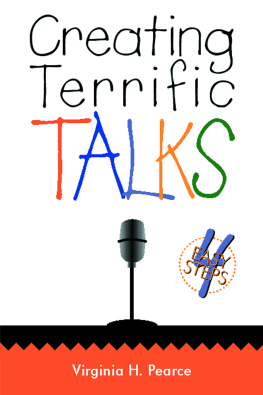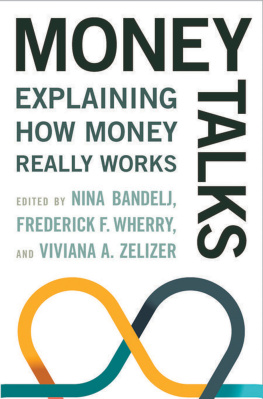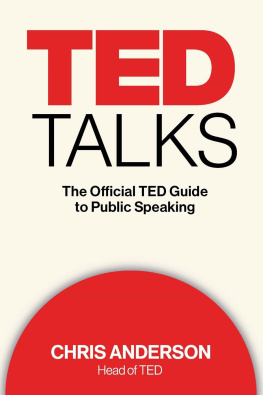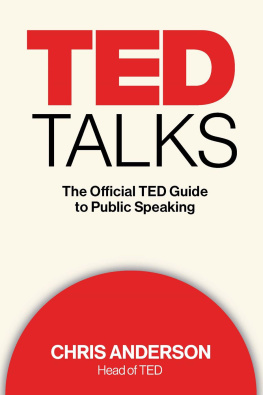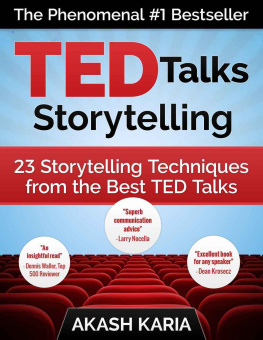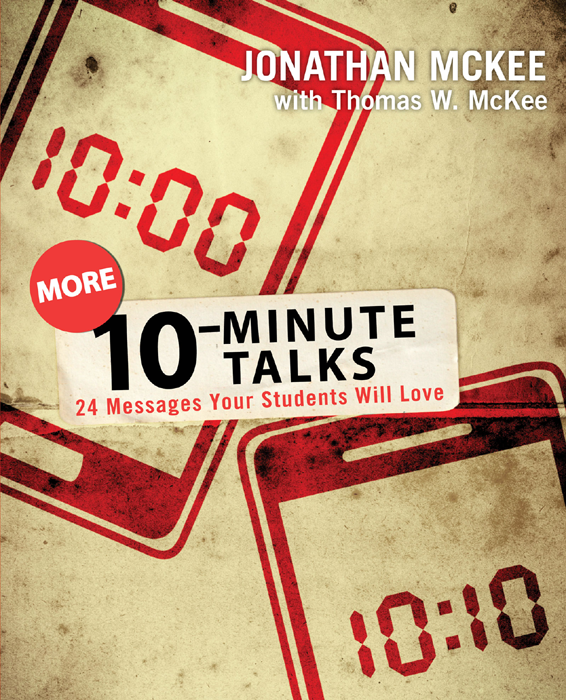Its evident to everyone in the room except the speaker.
The audience is bored, retaining very little, and cant wait for the speaker to just stop talking.
Sure, theyll remember a funny story, maybe even the Scripture the speaker used but the main point of the talk? No ones sure. Did it have something to do with the story of the cat and the aluminum foil?
Talented speaker Ken Davis conducted a survey for his book, Secrets of Dynamic Communication, of 2,500 people leaving church services when the sermon should have remained fresh in their minds. Well, 70 percent had no idea what had just been communicated. Of the remaining 30 percent, some could remember a joke or a story, but few could identify any purpose or direction of the sermons.
The study gets worse. Ken also interviewed the speakers themselves. More than half could not articulate in a simple sentence any objective or focus to their talk.
No wonder no one remembered the main point.
Whats the common denominator here?
Communicating with Clarity
I do a lot of speaking. From California to D.C., Texas to Nova Scotia. School assemblies, camps, conferences. Wiry middle-school tweens, over-philosophical college students, blue-haired little old ladies.
I also do a lot of listening. I attend lots of conferences, Im in church on Sundays, and I usually hear a regular dose of midweek talks in youth ministries I visit across the United States. And in the last decade Ive listened to literally hundreds of speakers apply to be part of a speakers network we offered through our ministry.
We added fewer than 30.
As a result of all my listening over the years, Ive made an observation about the majority of youth workers speaking abilities: Most could use some help communicating with clarity.
Let me ask two simple questions:
ONE: On average, how long do you talk when giving a sermon/message?
TWO: Why?
No matter what your answer is to the first question, chances are good youve never thought about an answer to the second question. In fact, most speakers have never thought to ask themselves that question. So let me ask you another question:
Why do we talk for 45 minutes when we can say it in 10?
Length
The following are two scenarios in which important messages were communicated clearly. The first comes from our youth room; the second comes from a field in Pennsylvania.
Last month, Jaime, a 22-year-old college student, walked to the front of our youth ministry room and opened with these words:
Last year I realized that the friends Ive surrounded myself with were dragging me down, so I made one of the toughest decisions Ive ever made
For the next five minutes she shared a single story of how surrounding herself with the wrong crowd led to disaster. Then she shared a Scripture out of Hebrews 12 that encourages believers to surround themselves with people of encouragementpeople wholl help us with our faith walk, not hinder it. Then she closed with these words: Think of the handful of people you spend the most time with: Are they drawing you closer to Christ or dragging you away from him?
Then she sat down. She spoke for five minutes and 22 seconds. Thats all.
Let me ask you another question: Would her talk have been any better had she blabbed on for another 40 minutes?
As you ponder your answer, heres the other story the one from a field in Pennsylvania.
It was November 19, 1863. Four months earlier, the Battle of Gettysburg claimed almost 8,000 American lives. It was the turning point in the Civil Warsuch an important victory for the Union that President Abraham Lincoln decided to address the country from the blood-soaked field.
It was a circus. Almost 20,000 gathered for the event. Edward Everett, a former senator and president of Harvard, spoke for more than two hours.
Then Abraham Lincoln, a bit under the weather, slowly walked to the podium:
Four score and seven years ago our fathers brought forth
Two minutes later, he was done.
Two minutes!
Now another question: Have you ever heard or read what Everett talked about? Did you even know he opened for Abe?
Likely, no.
Like every other American from that historical day to the present, you were more impacted by the (much) shorter speech.
The best speakers know that impact isnt determined by length of speech.
Want more proof? Martin Luther King, Jr.s famous I Have a Dream speech lasted just 16 minutes. Franklin D. Roosevelt kept his Day of Infamy speech to just six and a half minutes. Winston Churchills Never Give In speech was just over four minutes long.
Okay, lets go back to the second question: Why?
Jaime, Lincoln, and Dr. King were aware of their audiences and the occasions. Edward Everett probably didnt care. He wanted to be heard and consequently wasnt.
So think through your audience and the occasion.
And lets learn an important lesson: Clarity and impact dont require length.
Oh, I can hear it now
Jonathan, I cant believe youre encouraging youth pastors to water down the message of the gospel!
We shouldnt cater to our cultures short attention span.
But Andy Stanley and Francis Chan talk for 45 minutes. Why cant I?
There are some wacky assumptions in those statements. For starters, short does NOT equal watered down. More importantly, Stanley and Chan are one in a million (well, two). They are amazing communicators. They can easily get away with 45 minutes and if were being honest, most of us cant.
Youve sat through youth talks that lasted longer than the most recent Lord of the Rings film directors edition. Painful. Some youth workers and speakers tend to equate LONG with DEEP.
Not the case.
In most situations, LONG equates with BORING.
One Story, One Passage One Clear Point
Dont get me wrong. Gifted speakers can (and should) teach 30-minute expository messages, even to teens. The problem? Many who give those 30-minute talks (and unfortunately the 45-minute talks) are like American Idol contestants who hear no from three judges while arguing, But all my friends say Im an amazing singer!
So if you arent Stanley or Chan take heart. Youre in good company. Most of us arent.
But you can still communicate with clarity, especially when you focus on one story, one passage, and one clear point.
Thats probably part of the reason Ive been teaching a workshop titled, Speaking to Teenagers with Short Attention Spans at the National Youth Workers Convention for the last few years. A bunch of us are responsible to speak on regular occasions in our ministries and clear, story-based 10-minute talks are often just what the doctor ordered.
So dont feel as though you have to speak for 45 minutes just because the guy preaching in your favorite weekly podcast does so. Again, long talks arent always deeper talks. Long talks arent more effective just because theyre long. Therefore a 10-minute talk might be just the tool you need to communicate the truth with clarity.

